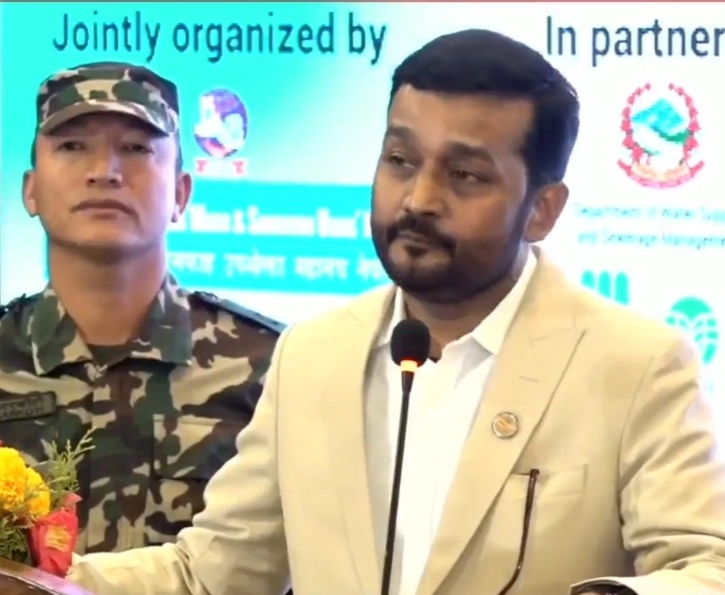Kathmandu, December 12: The National WASH Advocacy Summit 2024, themed "Making WASH a Political Agenda," officially inaugurated by Pradip Yadhav, the Minister of Water Supply, at Hotel Everest, New Baneshwor, Kathmandu, brought together key stakeholders from various sectors. Organized by the Ministry of Water Supply in collaboration with the Federation of Drinking Water and Sanitation Users Nepal, the two-day event underscores the importance of water, sanitation, and hygiene (WASH) as a pivotal issue intersecting health, education, environment, disaster risk management, and gender equality.
Building a Unified Front for WASH
In his inaugural address, Minister Pradip Yadhav emphasized the need for robust, multi-sectoral collaboration to address WASH challenges. He stressed that climate change exacerbates the vulnerability of WASH infrastructure and called for climate-resilient solutions. “WASH is not just a health issue, but a matter of economic growth and social equity. We must ensure that all sectors are working together to secure the future of water and sanitation for all,” he stated.
Experts at the summit highlighted how climate change exacerbates challenges in maintaining resilient WASH infrastructure. They emphasized the need for integrated, cross-sectoral approaches to ensure long-term impacts on health, education, and inequality. WASH’s role in bridging urban and rural disparities and promoting gender equality was a central focus of the discussions.
Call to Action
The summit outlined crucial recommendations, urging:
Political prioritization of WASH issues: All levels of government and political parties were encouraged to elevate WASH concerns in policymaking.
Consensus on the right to water and sanitation: A shared political will is necessary to enshrine WASH as a fundamental human right.
Innovative financing mechanisms: Engaging diverse stakeholders, including private sectors and international partners, to secure funding for climate-resilient WASH projects.
Collaboration and Partnerships
The event saw the active participation of international development partners, including USAID, SNV Nepal, Oxfam, and Plan International. Collaborative strategies were discussed to tackle water scarcity, sanitation challenges, and hygiene education, particularly for vulnerable communities.
This summit serves as a reminder of the critical role of WASH in addressing inequalities and fostering sustainable development. As the discussions unfold, it is expected to drive actionable commitments that position WASH at the forefront of Nepal’s political and developmental agenda.